Episode List
41 Timeless Episodes:
SEASON ONE
 #101: Wealthier Than You Think? Juliet Schor 🔊
#101: Wealthier Than You Think? Juliet Schor 🔊
Americans are working longer hours and taking on debt to keep up with the Joneses and reproduce a lifestyle we’ve been told “makes life worth living.” Juliet Schor thinks there’s a better way. She calls it “plenitude,” and it’s a small-scale lifestyle involving greater degrees of both self-sufficiency and community, more control over our time, and more satisfaction.
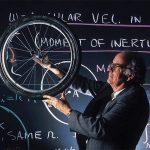 #102: What’s So Smart About Growth? Al Bartlett 🔊
#102: What’s So Smart About Growth? Al Bartlett 🔊
World-renowned physics professor Al Bartlett was quick to tell us “smart growth” and “dumb growth” both lead us to the same undesirable end; “smart growth” just takes you there in style. Bartlett penned Laws Relating to Sustainability, the most important of which was: “Population growth and/or growth in the rates of consumption of resources cannot be sustained.”
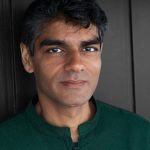 #103 The Fetish of GDP: Raj Patel 🔊
#103 The Fetish of GDP: Raj Patel 🔊
Economist Raj Patel shares that, “The tools with which we’ve been raised to help us understand the way the world works and how our future might be delivered to us…are broken. But it’s OK, because there are loads of solutions around us in which we might manage the world differently and more sustainably.”
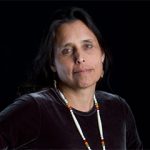 #104 Ecological Amnesia: Winona Laduke 🔊
#104 Ecological Amnesia: Winona Laduke 🔊
The author of Recovering the Sacred tells us we need a society that is “respectful, resilient, and ecologically and socially responsible.” Instead, “we have a society based on conquest, on consuming more than it needs.” We emphasize “quarterly profits over intergenerational responsibility.”
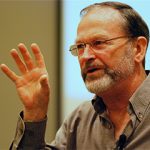 #105 Rewriting Our Cultural Narrative: William Rees 🔊
#105 Rewriting Our Cultural Narrative: William Rees 🔊
“Cultural narrative” is our understanding of how the world works. What’s important to us? How do we define success, progress and happiness? Rees observes that our current narrative is the worldview that neverending growth in income, and growth in the scale of the human project are desirable and possible. We’re naturally optimistic, and short-sighted, so we have a natural disposition to live in denial of the physical realities of our world. We’d “rather have a party now, than worry about having parties ten, fifteen, thirty years from now.”
 #106 Cruel Hoax: Stephanie Mills 🔊
#106 Cruel Hoax: Stephanie Mills 🔊
Stephanie Mills made headlines in the spring of 1969 when she vowed, in her commencement address (titled The Future is a Cruel Hoax), to conceive no children. “Our days as a race on this planet are, at this moment, numbered,” she proclaimed, “and the reason for our finite, unrosy future is that we are breeding ourselves out of existence.” Stephanie reflects on the life she has led and the important decision she made at the age of twenty-two. She shares insight about “the 500-year war on subsistence,” and the dumbing down of discourse about overpopulation.
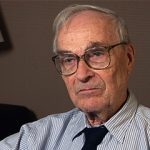 #107 Cornucopian Myth: William Catton 🔊
#107 Cornucopian Myth: William Catton 🔊
“The age of growth and the age in which growth is going to be considered a good thing is coming to an end.” The late sociologist William R. Catton authored the landmark book, Overshoot: The Ecological Basis of Revolutionary Change, published in 1980. He observed that our lives are built around an obsolete cultural belief system, developed when the size of human civilization had not yet outgrown the carrying capacity of the planet.
 #108 Lying to Ourselves: Lorna Salzman 🔊
#108 Lying to Ourselves: Lorna Salzman 🔊
What went wrong with the environmental movement? Environmental activist, organizer and author Lorna Salzman shares her thoughts about climate change, consumerism, cheap energy, economics, lawyers and politics. She discusses “what went wrong with the environmental movement,” plus irrationality, denial, and outright lies we tell ourselves and each other.
 #109 Running on Empty: Rex Weyler 🔊
#109 Running on Empty: Rex Weyler 🔊
“I’m not concerned that my children will consume less stuff and have to live lifestyles more like my grandparents. I’m more concerned that my children will have to live in chaos because we were stupid and we tried to drive right past all these limits….” Early Greenpeace organizer Rex Weyler shares his observations of “what can happen as a civilization grows out of control.” Technology, economics, consumption, population and politics are all in his cross-hairs. Weyler does express some hope for the future, as well, and outlines changes needed to bring human civilization back to living within ecological limits.
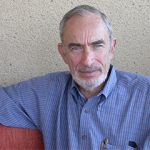 #110 Behaving Against Our Best Interests: Paul Ehrlich 🔊
#110 Behaving Against Our Best Interests: Paul Ehrlich 🔊
Biologist Paul Ehrlich (author of The Population Bomb) and fellow scientists tell us we are expanding our population and economy beyond the Earth’s carrying capacity – at our peril. Why do we insist on continuing? Ehrlich has been a keen observer of human behavior for over 50 years, and he thinks “we need a millennium assessment of human behavior.” If we can understand how we behave, and why we behave that way, perhaps we can figure out how to behave as though we want to hang around another thousand years.
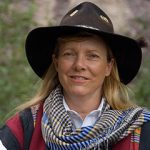 #111 What We Want More Of: Hunter Lovins 🔊
#111 What We Want More Of: Hunter Lovins 🔊
Our ecosystems contribute tens of trillions of dollars to our economy every year, but – as L. Hunter Lovins notes, “At present we’re losing every major ecosystem on the planet…What are we doing to ourselves?…We have the…intelligence…to make different choices.” In this interview, she outlines those choices and shares how they benefit businesses and the planet. Hunter Lovins co-authored the best-selling book, Natural Capitalism, with Paul Hawken and Amory Lovins.
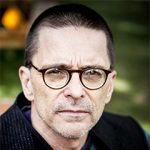 #112 – Nature Doesn’t Negotiate: Robert Jensen 🔊
#112 – Nature Doesn’t Negotiate: Robert Jensen 🔊
“If there is to be a decent future, we have to give up on the imperial fantasy of endless power, the capitalist fantasy of endless growth, the technological fantasy of endless comfort…we should mourn the world that these systems have created and search for something better. Systems that celebrate domination are death cults, not the basis for societies striving for justice and sustainability.” Journalism professor Robert Jensen writes and speaks about the news that “we live in an economy that is based on the destruction of places all over world.” Jensen explains what he calls “an unprecedented set of threats to the possibility of ongoing, large-scale, human habitation of the planet.”
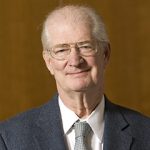 #113 – Economic Heresy: Herman Daly 🔊
#113 – Economic Heresy: Herman Daly 🔊
Robust economic growth has become the Holy Grail of public policy and politics. But some economists and many scientists have come to believe growth has become “uneconomic.” Former World Bank Senior Economist Herman Daly explains this in terms we can all understand. He postulates that, in a full world, the costs of further economic growth exceed the benefits, and we are reaching a point where it is physically impossible to keep growing the global economy.
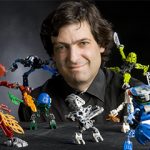 #114 – Predictably Irrational: Dan Ariely 🔊
#114 – Predictably Irrational: Dan Ariely 🔊
“We repeatedly and predictably make the wrong decisions in many aspects of our lives.” We may be rats in a maze for scientific study, but behavioral economist Dan Ariely puts a refreshingly human face on the scientific study of why we do the things we do. He offers an insightful explanation of why Republicans and Democrats in the U.S. can’t agree on facts.
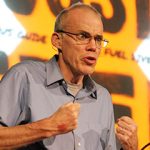 #115 – Durable Future: Bill McKibben 🔊
#115 – Durable Future: Bill McKibben 🔊
Relocalization may be the most important strategy for minimizing climate change. According to Bill McKibben, “working as communities is the most important thing that we can be doing right now.” In this wide-ranging conversation about the sustainability of our civilization, environmental journalist and 350.org co-founder McKibben shares his thinking about much more than climate change, including the fact that having “more” is not necessarily the key to our happiness.
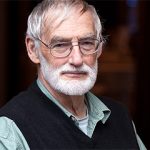 #116 – Limits to Growth: Dennis Meadows 🔊
#116 – Limits to Growth: Dennis Meadows 🔊
“Our computer-generated scenarios all showed this growth stopping in the early decades of the 21st century, and, I must say, looking back now, it seems that we’re right on schedule.” Dennis Meadows led the team at MIT whose computer simulations led to the publication of the top-selling environmental book of all time – The Limits to Growth. Their World3 computer model’s business-as-usual scenario did not paint a rosy picture, and many economists and industrialists criticized the study harshly. In recent years, several studies have confirmed that the “standard-run” scenario turned out to be remarkably accurate.
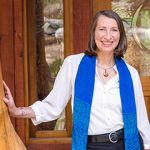 #117 – A Not So Big Life: Sarah Susanka 🔊
#117 – A Not So Big Life: Sarah Susanka 🔊
Architect Sarah Susanka observed that houses in the U.S. were getting larger – but some rooms were seldom occupied, and often not even furnished. She found clients frequently did not get the immense satisfaction they expected from living in their “dream house.” How this relates to the way we inhabit our lives, and even the planet, is the subject of this conversation.
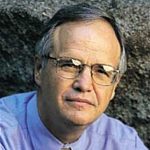 #118 – Reinvent the Economy: Gus Speth 🔊
#118 – Reinvent the Economy: Gus Speth 🔊
While world leaders wring their hands over forecasts of timid GDP growth, a growing list of visionaries around the world are collaborating to redefine economic objectives in a more meaningful and sustainable way. Former White House advisor Gus Speth has been at the forefront of new economic thought for decades. His prescription for change is not a bunch of economic mumbo-jumbo for boards and bankers. His ideas reach deep into the way we conduct our personal lives.
SEASON TWO
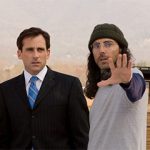 #201 Survival of the Kindest: Tom Shadyac 🔊
#201 Survival of the Kindest: Tom Shadyac 🔊
Tom Shadyac is a successful Hollywood comedy director who found the traditional trappings of success were not the key to happiness. He traded a mansion and private jets for a mobile home and a bicycle. After a bicycle accident nearly killed him, he decided it was time to tell a different kind of story. Shadyac discusses human nature, the definition of success, and our cultural story, with a few references to Bernie Sanders and Donald Trump along the way.
 #202 Moral Revolution: Tom Shadyac 🔊
#202 Moral Revolution: Tom Shadyac 🔊
In part two of a two-episode conversation, Shadyac discusses technology, morality, competition, success and politics. His documentary, I Am, explored what’s wrong with the world and what we can do about it. He wrote the book, Life’s Operating Manual, to share his observations about the true meaning of life.
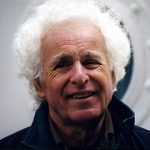 #203 End of Ponzi Economy: Jerry Mander 🔊
#203 End of Ponzi Economy: Jerry Mander 🔊
Was globalization a temporary state that has run its course? That’s the case made by Jerry Mander, who believes there is plenty of evidence that the promises of capitalism, consumerism, individual wealth and never-ending growth are coming up empty. He’s founder of the International Forum on Globalization and author of The Case Against the Global Economy and for a Turn Toward the Local.
 #204 Pulling the Rug Out from Under Our Children: Brian Czech 🔊
#204 Pulling the Rug Out from Under Our Children: Brian Czech 🔊
Economic growth is the number one public policy goal around the world, yet our pursuit of growth is “pulling out the rug from our own kids’ and grandkids’ future,” according to Brian Czech, president of the Center for the Advancement of the Steady State Economy. He wants us to understand economic growth is physically impossible to sustain on a finite planet, it’s depleting nonrenewable natural resources and degrading or eliminating crucial habitat for other species.
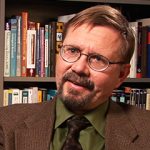 #205 Trickle-Down Consumption: Brian Czech 🔊
#205 Trickle-Down Consumption: Brian Czech 🔊
How can policymakers be persuaded to abandon the most widespread public policy goal on Earth? Brian Czech explains why pro-growth economists proliferate, and offers his prescription for making the shift to a steady state economy. Brian is founder and president of the Center for the Advancement of the Steady State Economy, and author of Shoveling Fuel for a Runaway Train and Supply Shock: Economic Growth at the Crossroads and the Steady State Solution.
 #206 Moral Basis for Small Families: Travis Rieder 🔊
#206 Moral Basis for Small Families: Travis Rieder 🔊
Deciding not to have one child is over 20 times more effective at reducing carbon footprint than a lifetime doing the six most common “green” activities. With human activity disrupting the climate, do we have a moral imperative not to have children, or to have only one child? Bioethicist Travis Rieder dares to explore this bold question with sensitivity and scientific rigor.
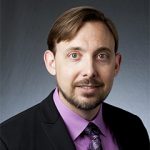 #207 Public Policy Brakes on Procreation? Travis Rieder 🔊
#207 Public Policy Brakes on Procreation? Travis Rieder 🔊
Efforts to date are falling far short of achieving the greenhouse gas reduction needed to avoid catastrophic climate disruption. Bioethicist Travis Rieder shakes things up by suggesting ethical use of public policy to encourage smaller families, which would result in dramatic decrease of carbon emissions. Rieder shares how he and Colin Hickey and Jake Earl parsed out what fertility reduction policies might be ethical and acceptable.
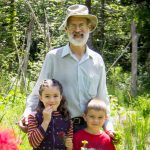 #208 Cultural Metamorphosis: Mike Nickerson 🔊
#208 Cultural Metamorphosis: Mike Nickerson 🔊
“We could be having so much fun that there just isn’t time to consume resources on a quantity, or produce waste on a quantity that would be problematic for the planet,” according Mike Nickerson. He shares his ideas about how enjoyable it could be to make the cultural shift necessary for human civilization to be sustainable.
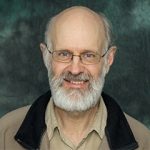 #209 What Keeps Our System Stuck? Mike Nickerson 🔊
#209 What Keeps Our System Stuck? Mike Nickerson 🔊
We’re not living on Earth as if we want to stay, observes Mike Nickerson. In our last episode, Mike Nickerson shared his vision for, and the joy of, making the cultural shift necessary for a sustainable human civilization. In this continuation of the conversation, we explore some of the forces keeping our system stuck in an unsustainable mode.
 #210 Avoiding Thought Traps: Frances Moore Lappé 🔊
#210 Avoiding Thought Traps: Frances Moore Lappé 🔊
We need to change the way we think if we want to extend the shelf-life of our civilization, according to Frances Moore Lappé, author of EcoMind: Changing the Way We Think and Diet for a Small Planet. In this 2017 conversation, Lappé explains some of the “thought traps” to avoid in order to effectively inspire transition from what she calls our “economy of destruction.”
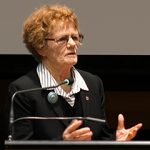 #211 Collision Course: Kerryn Higgs 🔊
#211 Collision Course: Kerryn Higgs 🔊
How and why did our society come to value economic growth so highly that we pursue it at the risk of our long-term survival? For some time scientists have warned that human civilization is living beyond the ecological means of our planet. Yet our commitment to economic growth is unwavering. Australian writer Kerryn Higgs chronicled this triumph of denial over science in her book, Collision Course: Endless Growth on a Finite Planet. She shares her findings here.
 #212 The Free Market Assault on Science: Kerryn Higgs 🔊
#212 The Free Market Assault on Science: Kerryn Higgs 🔊
What exactly are “think tanks” supposed to be thinking about? Are some of them part of a campaign to cast doubt on science when it could interfere with profits? Author Kerryn Higgs’ research reveals think tanks, industry associations, and even university economics departments all play a role in advancing and preserving our society’s commitment to growth above all else, even if it means ignoring science.
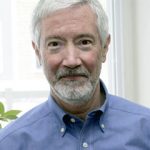 #213 Everything You Want to Know About Population: Bill Ryerson 🔊
#213 Everything You Want to Know About Population: Bill Ryerson 🔊
World population passed the 7.5 billion mark in the spring of 2017, and it could rise to 11 billion by the turn of the century. If we keep adding over 200,000 to the population every day as we do now, and we don’t suffer a “massive die-off,” that figure will be closer to 30 billion. Population Media Center President Bill Ryerson corrects misconceptions, debunks myths, and shares a variety of surprising facts about overpopulation, population growth, fertility rates and human reproductive behavior in the first of a two-part conversation.
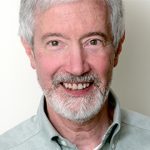 #214 Sustainable Population Roadblocks: Bill Ryerson 🔊
#214 Sustainable Population Roadblocks: Bill Ryerson 🔊
Most scientists agree the current level of human population, in combination with present living arrangements, is damaging our ecosystems. But doing something about overpopulation is not high on public policy lists. It’s rarely discussed in the media or over coffee with friends. Why? Population Media Center President Bill Ryerson discusses the obstacles preventing faster progress on solving the overpopulation problem, or even admitting there is a problem.
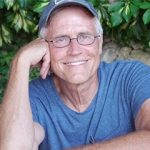 #215 Carbon Drawdown: Paul Hawken 🔊
#215 Carbon Drawdown: Paul Hawken 🔊
100 real-world actions happening now have the potential to bring greenhouse gases back down to a level that won’t cause humans to join the ranks of the dodo and other extinct species. They just need to be scaled up. That’s the conclusion of environmentalist and entrepreneur Paul Hawken and the team of researchers, scientists, business people and political leaders he assembled for Project Drawdown.
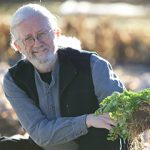 #216 Surviving a Hostile Climate on Local Food: Michael Brownlee 🔊
#216 Surviving a Hostile Climate on Local Food: Michael Brownlee 🔊
A scaled-up local food system may be the only way we can feed ourselves as we weather the storm of climate change. Until now, CSAs, urban gardens and farmer’s markets have been the face of the local food movement. But Michael Brownlee, author of The Local Food Revolution: How Humanity Will Feed Itself in Uncertain Times, tells us this is not nearly enough. Brownlee shares how global industrial agriculture is failing us, and can’t adapt to the coming climate changes. He advocates relocalizing our food supply chain in order to adapt and survive.
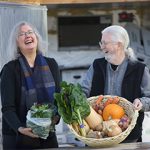 #217 Local Food Revolution: Michael Brownlee 🔊
#217 Local Food Revolution: Michael Brownlee 🔊
Re-establishing our personal relationship with food and ending our role as commodity “consumers” is part of a healing, regenerative process. It’s a part of our natural evolution, according to Michael Brownlee, author of The Local Food Revolution: How Humanity Will Feed Itself in Uncertain Times. Brownlee shares why food is sacred, and what is needed to accelerate relocalization of our food supply. He also explains what we’ve lost in the commoditization of food, and what we can gain as we relocalize.
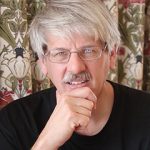 #218 Near-Term Human Extinction: Guy McPherson 🔊
#218 Near-Term Human Extinction: Guy McPherson 🔊
Award-winning scientist Dr. Guy McPherson has concluded that for human civilization, the end is near. He advises the rate of change of our climate is increasing far more rapidly than we are being told, and this puts us on his endangered species list. McPherson reveals why the International Panel on Climate Change, and even many individual scientists, understate the problem. He critiques our modern “living arrangement,” and the lies our culture promulgates to avoid admitting, “We are trashing this planet at an astonishing rate of speed.” He also shares his thinking about a “sane” living arrangement. You might be surprised – both at how soon he expects we’ll be extinct, and at his positive advice about how to respond to this news.
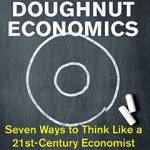 #219 Flipping Economics on Its Head: Kate Raworth 🔊
#219 Flipping Economics on Its Head: Kate Raworth 🔊
No civilization should head out into the world without “Doughnut Economics” in its survival kit. With her modernized thinking, economist Kate Raworth is, in her words, “flipping economics on its head.” UK Guardian columnist George Monbiot calls her new book, Doughnut Economics: Seven Ways to Think Like a 21st-Century Economist, “brilliant, thrilling and revolutionary.” Raworth outlines seven fundamentals to achieving a healthy 21st century economy.
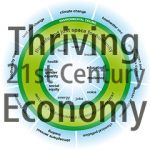 #220 Thriving Economy: Not Rocket Science – Kate Raworth 🔊
#220 Thriving Economy: Not Rocket Science – Kate Raworth 🔊
Human civilization can thrive while living within sensible limits imposed by a finite system. “Renegade economist” Kate Raworth manages to tell the truth about what we’re getting wrong in economics, while at the same time inspiring activism and optimism. Kate finishes her list of seven fundamentals to achieving a healthy 21st century economy, and shares how we can put into practice what she is preaching.
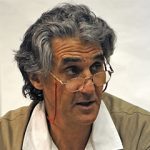 #221 Bystander Effect: Alan Berkowitz 🔊
#221 Bystander Effect: Alan Berkowitz 🔊
We’ve all heard of “the bystander effect” in which a large number of people stand by and do nothing to help someone in trouble. According to social norms theory, misperceptions of the attitudes or behaviors of our peers can cause the expression of problem behavior and the inhibition of healthy action. Are we all “bystanders” when it comes to responding rationally to the serious environmental crises faced by our civilization? How is our behavior shaped by that of those around us?
 #222 Time Blindness: Jack Alpert 🔊
#222 Time Blindness: Jack Alpert 🔊
Frustrated at the abysmal rate of adoption when seatbelts were introduced into cars in the 1960s, Jack Alpert quit his job as an automotive engineer to study human decision-making. In this episode he sheds light on how we gather and process information to predict future outcomes and make related decisions. Would you be surprised to learn that human beings today have an impairment that prevents most of us from making the wisest decisions that affect our future?
 #223 Conversation Earth Retrospective: Dave Gardner & Kaitlyn Hickmann 🔊
#223 Conversation Earth Retrospective: Dave Gardner & Kaitlyn Hickmann 🔊
Kaitlyn interviews Conversation Earth co-creator/host Dave Gardner about the series. They discuss how the show is produced, and Dave shares highlights from the first two seasons (40 episodes).
Conversation Earth is a production of Citizen-Powered Media. 2930 Orion Drive Colorado Springs, CO 80906 +1-719-576-5565 www.citizenpoweredmedia.org info@conversationearth.org
